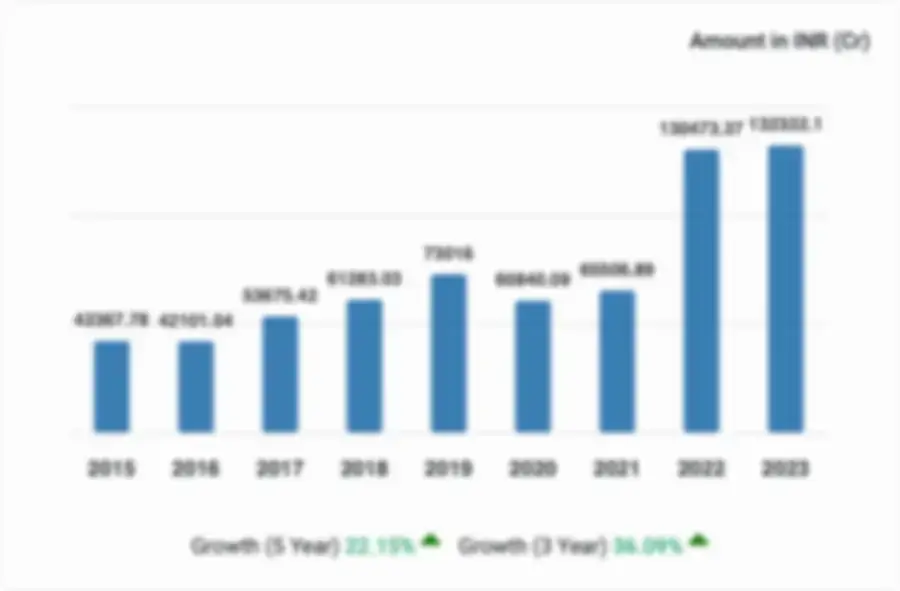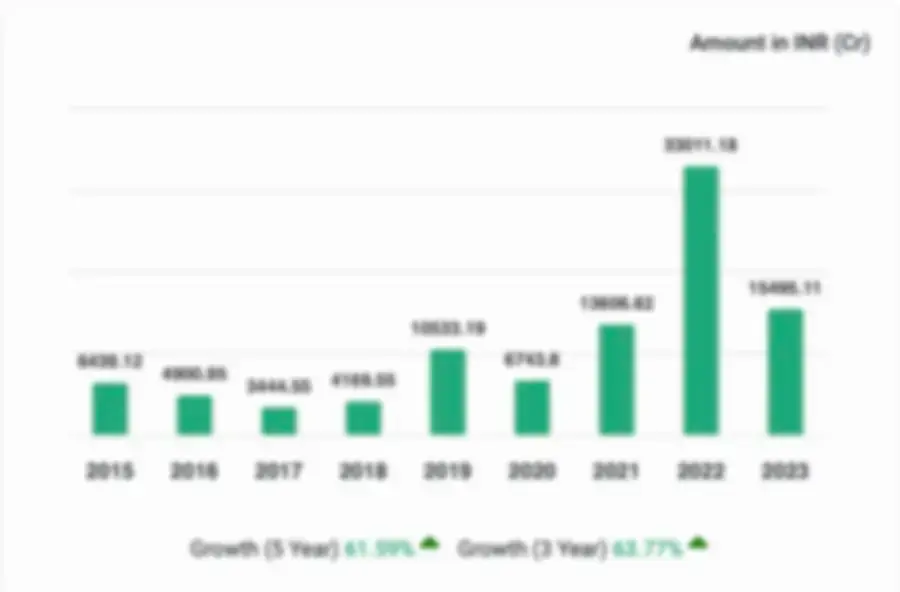
Flashkart India Profile
Key Indicators
- Authorised Capital ₹ 1.00 M
- Paid Up Capital ₹ 0.10 M
- Company Age 7 Year, 7 Days
- Last Filing with ROC 31 Mar 2023
- Open Charges ₹ 5.49 M
- Revenue Growth 48.92%
- Profit Growth 9.52%
- Ebitda 19.55%
- Net Worth 62.49%
- Total Assets 52.34%
About Flashkart India
Flashkart India Private Limited (FIPL) is a Private Limited Indian Non-Government Company incorporated in India on 20 February 2018 (Seven years 7 days old ). Its registered office is in Kanchipuram, Tamil Nadu, India.
The Company is engaged in the Transport And Logistics Industry.
The Company's status is Active, and it has filed its Annual Returns and Financial Statements up until 31 March 2023. It's a company limited by shares with an authorized capital of Rs 1.00 M and a paid-up capital of Rs 0.10 M.
The company currently has active open charges totaling ₹5.49 M.
Magesh Jeeva and Sasidharan Sekaran serve as directors at the Company.
Company Details
- Location
Kanchipuram, Tamil Nadu, India
- Telephone
+91-XXXXXXXXXX
- Email Address
- Website
- Social Media -
Corporate Identity Details
- CIN/LLPIN
U63030TN2018PTC120907
- Company No.
120907
- Company Classification
Private Limited Indian Non-Government Company
- Incorporation Date
20 Feb 2018
- Date of AGM
30 Sep 2023
- Date of Balance Sheet
31 Mar 2023
- Listing Status
Unlisted
- ROC Code
Roc Chennai
Industry
Who are the key members and board of directors at Flashkart India?
Board Members (2)
| Name | Designation | Appointment Date | Status |
|---|---|---|---|
| Magesh Jeeva | Director | 09-Jun-2021 | Current |
| Sasidharan Sekaran | Additional Director | Current |
Financial Performance of Flashkart India.
Flashkart India Private Limited, for the financial year ended 2023, experienced significant growth in revenue, with a 48.92% increase. The company also saw a slight improvement in profitability, with a 9.52% increase in profit. The company's net worth Soared by an impressive increase of 62.49%.


- Key Matrics
- Balance Sheet
- Profit and Loss
- Cash Flow
- Ratios
| Metrics |
| (FY 2022) | (FY 2021) | (FY 2020) | (FY 2019) | ||
|---|---|---|---|---|---|---|---|
| Total Revenue |
| ||||||
| Revenue from Operations |
| ||||||
| Total Assets |
| ||||||
| Profit or Loss |
| ||||||
| Net Worth |
| ||||||
| EBITDA |
|
What is the Ownership and Shareholding Structure of Flashkart India?
In 2023, Flashkart India had a public holding of 50.00%. Access key insights, ownership, including shareholding patterns, funding, foreign investors, KMP remuneration, group structure, and overseas investments.

Related Corporates (Common Directorship)
 Wide Range Automotive (India) Private Limited
Wide Range Automotive (India) Private LimitedMagesh Jeeva is a mutual person
 One-Stop Supply Chain Solutions Private Limited
One-Stop Supply Chain Solutions Private LimitedMagesh Jeeva is a mutual person
Charges (Loans)
₹5.49 M
₹0
Charges Breakdown by Lending Institutions
- Others : 0.55 Cr
Latest Charge Details
| Date | Lender | Amount | Status |
|---|---|---|---|
| 29 Feb 2024 | Others | ₹1.52 M | Open |
| 26 Apr 2023 | Others | ₹2.66 M | Open |
| 03 Sep 2020 | Others | ₹1.30 M | Open |
How Many Employees Work at Flashkart India?
Flashkart India has a workforce of 53 employees as of Mar 30, 2024. Unlock access to detailed historical data on individuals associated with the company, including employment records, contributions to the Employees' Provident Fund Organization (EPFO), and other related insights.

Deals i

Gain comprehensive insights into the Deals and Valuation data of Flashkart India, offering detailed information on various transactions, including security allotment data. Explore the intricate details of financial agreements, mergers, acquisitions, divestitures, and strategic partnerships that have shaped Flashkart India's trajectory.
Rating

Access the credit rating data, providing valuable insights into the company's creditworthiness and financial stability. Explore assessments from leading credit rating agencies, evaluating factors such as debt obligations, liquidity, profitability, and overall financial health.
Alerts

Stay informed about regulatory alerts and litigation involving and associated companies. Receive timely updates on legal proceedings, regulatory changes, and compliance issues that may impact the company's operations, reputation, and financial performance. Monitor litigation involving subsidiaries, joint ventures, and other affiliated entities to assess potential risks and liabilities.